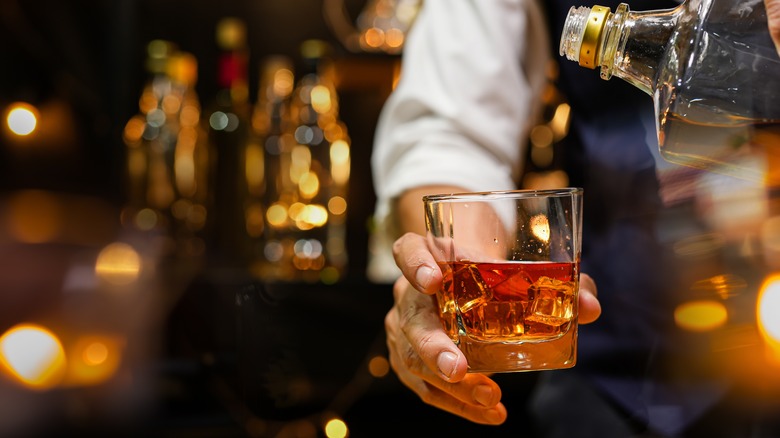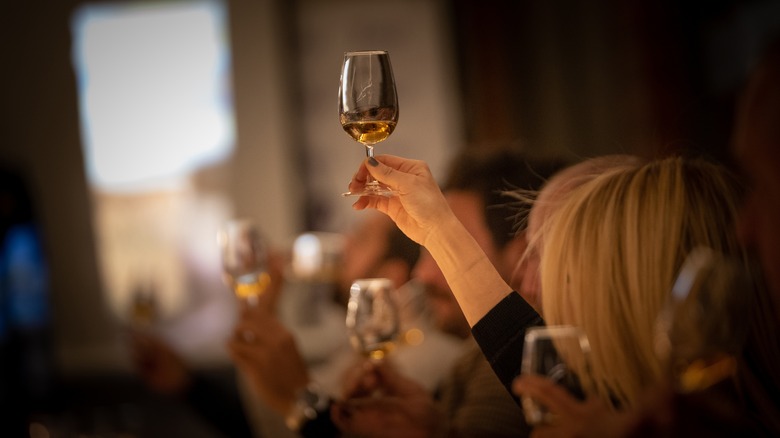An Expert's Advice On Watering Your Bourbon
There are a great many ways to enjoy bourbon, from simple cocktails like a classic Boulevardier to a more elaborate pickle juice whiskey sour. Bourbon purists and aficionados, though, will often say that for as nice as these concoctions may be, they get in the way of the whiskey's unique flavor. But even the experts are torn on how to optimally appreciate the drink. Should it be served neat and pure or blossomed with a splash of water? Tasting Table turned to one of the top minds in the world of bourbon, Executive Bourbon Steward Chris Blatner, to find out whether or not water is de rigueur or gauche when it comes to bourbon tasting.
"The use of water or ice is a personal preference," Blatner tells us. "I would always encourage people to first try a whiskey neat, without any additions. Then from there add water or a large ice cube." The science behind adding water to bourbon — and other whiskeys — has been well-studied. It boils down to diluting the strength of the whiskey and thereby making certain flavor and aroma compounds more apparent. But, as Blatner points out, there's nothing wrong with having a side-by-side tasting of a bourbon, both neat and with water, to enjoy the full breadth. "For me, the main factor for using water or ice is the proof point of the whiskey," he continues. "Generally, I'm only using water or ice with whiskeys that are over 100 proof."
Why water?
If you are in the water camp or at least intrigued enough to give it a shot, then know that there is more to this than just turning the tap. In fact, most bourbon connoisseurs and distillers suggest keeping the spirit away from common tap water. It's a matter of purity.
Tap water is not just water, but contains a number of different chemicals and compounds put there both intentionally and not. Fluoride and chlorine flow out of the faucet to improve oral health and keep the water clean, but when added to bourbon they can affect its taste. There are also metals and other chemicals that leach out of transmission pipes and household plumbing, all in safe enough levels, but still not optimal for a bourbon tasting where clarity is key. Purified or distilled water and ice cubes made from it are the order of the day for diluting the bourbon's alcohol bite, as the neutrality does nothing to alter the flavor.
So, if you want to add a bit of water, do just that by keeping the volume low. A few healthy drops from a straw added to a 2-ounce neat pour of bourbon is a good starting point, but feel free to experiment with what works for you. Or take a page from Chris Blatner's playbook and add none at all. "To me the experience of drinking the whiskey as it was bottled by the producer is the purest experience," he says.

